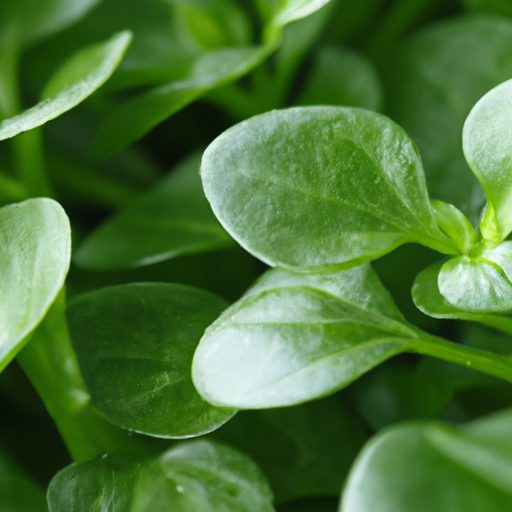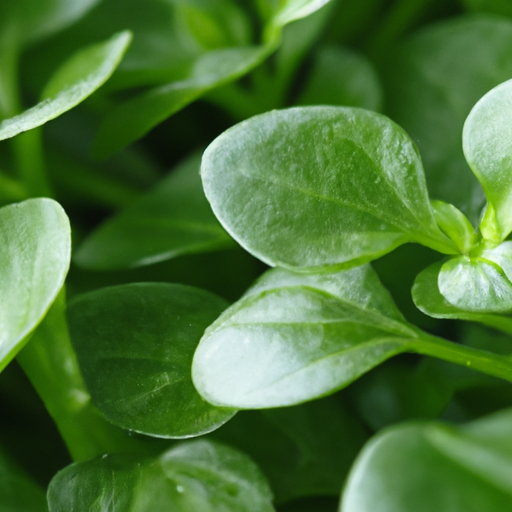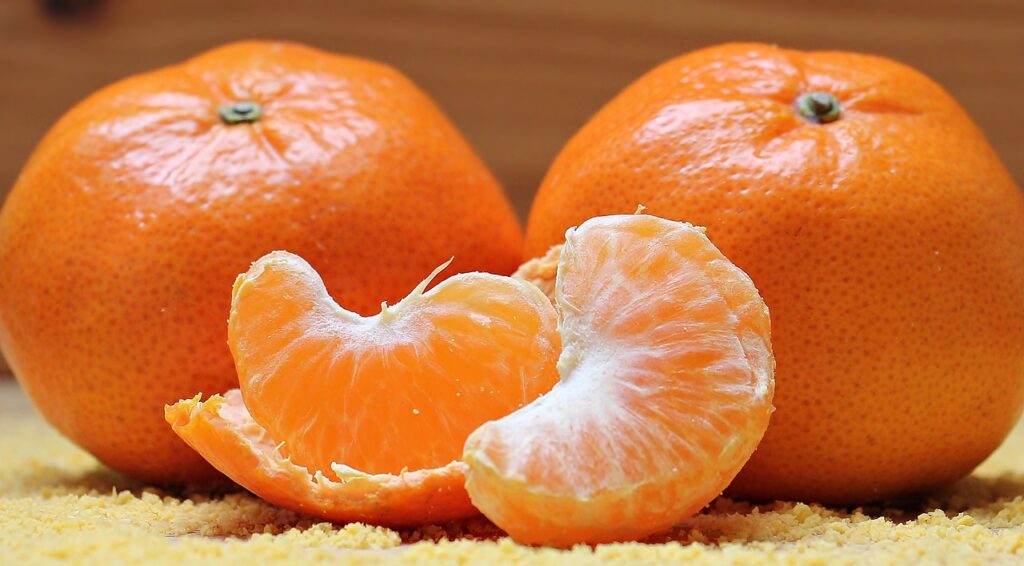Did you know that watercress is often referred to as the “world’s healthiest vegetable” by the CDC? Packed with essential nutrients, this leafy green is not only delicious, but it also offers a range of health benefits. From its anti-inflammatory properties to its potential in preventing certain types of cancer, watercress is a must-have addition to your diet. With its high vitamin K content for bone health, heart-healthy minerals, and potential in protecting against macular degeneration, this nutrient-dense superfood has it all. Whether you’re aiming to boost your overall health or looking for ways to incorporate more nutritious foods into your meals, watercress is definitely worth considering.

Overview of Watercress
Introduction to watercress
Watercress is a leafy green vegetable that is widely regarded as one of the healthiest vegetables in the world. Its vibrant green leaves and crisp texture make it a popular choice for salads and sandwiches. Not only does watercress have a deliciously refreshing taste, but it also offers numerous health benefits.
Benefits of watercress
Watercress has gained recognition for its wide range of health benefits. It is packed with vitamins, minerals, and antioxidants that promote overall well-being. Some of the key benefits of watercress include its anti-inflammatory properties, cancer prevention and growth reduction, support for heart health, promotion of eye health, enhancement of bone health, and its nutrient density combined with low calorie content.
Nutritional profile of watercress
Watercress is a nutritional powerhouse, containing an impressive array of vitamins and minerals. It is particularly rich in vitamin K, calcium, magnesium, potassium, phosphorus, vitamin C, vitamin A, lutein, zeaxanthin, and glucosinolates. This combination of nutrients makes watercress an incredibly nutritious addition to any diet.
Health Benefits of Watercress
Anti-inflammatory properties
Watercress is rich in anti-inflammatory compounds, such as Phenethyl isothiocyanate (PEITC), that help to reduce inflammation in the body. Chronic inflammation is associated with various diseases, including heart disease, cancer, and autoimmune disorders. Including watercress in your diet can help combat inflammation and promote a healthy immune system.
Cancer prevention and growth reduction
Watercress has been linked to a reduced risk of certain types of cancer, thanks to its high content of cancer-fighting compounds. The powerful antioxidants and bioactive compounds in watercress, including glucosinolates, have been shown to inhibit the growth of cancer cells and reduce the risk of tumor development. Regular consumption of watercress may play a vital role in preventing and reducing the growth of cancer cells.
Supports heart health
Watercress contains several nutrients that are beneficial for heart health. Calcium is essential for cardiovascular function, magnesium helps maintain healthy blood pressure levels, and potassium regulates heart rhythm. Incorporating watercress into your diet can contribute to a healthy heart and reduce the risk of heart disease.
Promotes eye health
Watercress contains lutein and zeaxanthin, two powerful antioxidants that are crucial for maintaining healthy eyes. These antioxidants help protect the eyes from oxidative stress and may reduce the risk of age-related macular degeneration (AMD). Adding watercress to your meals can support eye health and preserve clear vision.
Enhances bone health
Watercress is an excellent source of calcium, magnesium, potassium, and phosphorus, all of which are essential for maintaining strong and healthy bones. Calcium contributes to bone strength, magnesium supports bone density, potassium helps prevent bone loss, and phosphorus aids in bone mineralization. Regular consumption of watercress can help protect against bone-related conditions such as osteoporosis.
Nutrient density and low calorie content
Watercress is not only nutrient-dense but also low in calories, making it an excellent choice for individuals aiming to maintain a healthy weight. It contains a wide range of essential vitamins and minerals while being relatively low in calories. By incorporating watercress into your diet, you can ensure you are getting the nutrients your body needs without exceeding your calorie intake.
Nutritional Profile of Watercress
Vitamin K
Watercress is an exceptional source of vitamin K, providing more than 100% of the recommended daily amount. Vitamin K is essential for blood clotting and bone health. It works alongside calcium to ensure proper blood clotting and plays a crucial role in maintaining strong and healthy bones.
Calcium
Calcium is crucial for the development and maintenance of healthy teeth and bones. Watercress is an excellent source of calcium, providing a significant amount in each serving. By consuming watercress regularly, you can support the health and strength of your skeletal system.
Magnesium
Watercress is rich in magnesium, a mineral involved in hundreds of biochemical reactions in the body. Magnesium is essential for maintaining healthy blood pressure levels, supporting muscle function, and regulating blood sugar levels. Including watercress in your diet can help ensure you meet your daily magnesium requirements.
Potassium
Potassium is crucial for maintaining proper heart rhythm and regulating blood pressure levels. Watercress contains a notable amount of potassium, making it a heart-healthy food choice. Consuming watercress can contribute to a healthy cardiovascular system and reduce the risk of heart disease.
Phosphorus
Phosphorus is essential for bone health and plays a crucial role in the formation and maintenance of strong bones and teeth. Watercress provides a significant amount of phosphorus, which can help prevent bone-related conditions such as osteoporosis.
Vitamin C
Watercress is a good source of vitamin C, a powerful antioxidant that supports immune function and helps protect the body against oxidative stress. The vitamin C content in watercress contributes to overall well-being and boosts the body’s natural defense mechanisms.
Vitamin A
Watercress contains vitamin A, which is essential for maintaining healthy vision, supporting the immune system, and promoting healthy skin. Including watercress in your diet can help ensure you meet your daily vitamin A requirements and support optimal health.
Lutein and Zeaxanthin
Watercress is rich in lutein and zeaxanthin, two antioxidants that are particularly beneficial for eye health. These compounds help protect the eyes from oxidative stress and reduce the risk of age-related macular degeneration (AMD), a condition that can lead to vision loss. Regular consumption of watercress can help keep your eyes healthy and your vision sharp.
Glucosinolates
Watercress contains bioactive compounds called glucosinolates, which have been linked to anticancer properties. These compounds have the ability to inhibit the growth of cancer cells and reduce the risk of tumor development. By incorporating watercress into your diet, you can take advantage of its potential cancer-fighting properties.

Anti-inflammatory Properties
Phenethyl isothiocyanate (PEITC)
Watercress is rich in Phenethyl isothiocyanate (PEITC), a compound known for its potent anti-inflammatory properties. PEITC has been shown to reduce inflammation in the body and may help alleviate symptoms associated with chronic inflammation, such as pain, swelling, and stiffness.
Reduction of inflammation-related conditions
Chronic inflammation is linked to various health conditions, including heart disease, diabetes, autoimmune disorders, and certain types of cancer. The anti-inflammatory properties of watercress can help reduce the risk of developing these conditions and promote overall health and well-being.
Cancer Prevention and Growth Reduction
The role of watercress in cancer prevention
Watercress contains a variety of bioactive compounds that have been shown to have anticancer properties. Glucosinolates, in particular, have been extensively studied for their ability to inhibit the growth of cancer cells and reduce the risk of tumor development. Including watercress in your diet can provide an additional layer of protection against certain types of cancer.
Inhibition of cancer cell growth
Phenethyl isothiocyanate (PEITC), found abundantly in watercress, has been shown to inhibit the growth of cancer cells by inducing apoptosis, a process that triggers the self-destruction of abnormal cells. The powerful combination of antioxidants, phytochemicals, and bioactive compounds in watercress makes it a potential ally in the fight against cancer.
Supports Heart Health
Calcium for cardiovascular function
Calcium, present in watercress, plays a vital role in maintaining the proper functioning of the cardiovascular system. It is required for muscle contraction, including the muscles of the heart. Consuming watercress regularly can support the health and optimal functioning of your heart.
Magnesium for healthy blood pressure
Magnesium is known for its ability to regulate blood pressure levels. It helps relax the blood vessels, allowing for better blood flow and reducing the risk of hypertension. Watercress, with its substantial magnesium content, can contribute to maintaining healthy blood pressure levels and preventing cardiovascular diseases.
Potassium for regulating heart rhythm
Potassium is essential for maintaining a healthy heart rhythm. It helps regulate the electrical signals that control heartbeat. Consuming watercress, which is rich in potassium, can support proper heart function and reduce the risk of irregular heart rhythms.
Promotes Eye Health
Macular degeneration prevention
Age-related macular degeneration (AMD) is a leading cause of blindness in older adults. Watercress contains lutein and zeaxanthin, two antioxidants that have been shown to protect against AMD. By including watercress in your diet, you can support your eye health and reduce the risk of vision loss.
Lutein and zeaxanthin for eye health
Lutein and zeaxanthin are crucial nutrients for maintaining healthy vision. These antioxidants help filter harmful blue light and protect the eyes from oxidative stress. Watercress provides a natural source of lutein and zeaxanthin, allowing you to nourish and protect your eyes from within.
Enhances Bone Health
Calcium for bone strength
Calcium is essential for building and maintaining strong bones. Watercress is a rich source of calcium, providing a significant amount of this mineral in each serving. Regular consumption of watercress can contribute to bone strength and reduce the risk of osteoporosis.
Magnesium for bone density
In addition to calcium, magnesium is vital for maintaining healthy bone density. It aids in the absorption and metabolism of calcium, ensuring that it is properly utilized by the body. Watercress, with its magnesium content, supports the development and maintenance of strong bones.
Potassium for preventing bone loss
Potassium plays a crucial role in preventing bone loss by reducing the loss of calcium through urine. Adequate potassium intake, which can be achieved by consuming watercress, can help maintain bone integrity and reduce the risk of fractures.
Phosphorus for bone mineralization
Phosphorus is an essential mineral for bone health, as it contributes to bone mineralization. Watercress provides a notable amount of phosphorus, supporting the formation and maintenance of strong bones and teeth.
Nutrient Density and Low Calorie Content
Watercress as a nutrient-dense food
Watercress is often referred to as a nutrient-dense food because it contains a wide range of vitamins, minerals, and other beneficial compounds per calorie. With its rich nutritional profile, including vitamins A, C, K, and numerous minerals, watercress provides a concentrated dose of nutrients that contribute to overall health and well-being.
Low calorie count and weight management
Despite its high nutritional content, watercress is remarkably low in calories. This makes it an excellent food choice for individuals aiming to manage their weight or maintain a calorie-controlled diet. By incorporating watercress into your meals, you can increase your nutrient intake without significantly adding to your caloric intake.
Conclusion
Watercress truly lives up to its title as the “world’s healthiest vegetable.” With its numerous health benefits, including anti-inflammatory properties, cancer prevention and growth reduction, support for heart health, promotion of eye health, enhancement of bone health, and impressive nutrient profile, watercress is an extraordinary addition to any diet. Its abundance of vitamins, minerals, and antioxidants makes it a powerhouse of nutrition, and its low calorie count allows for guilt-free enjoyment. By incorporating watercress into your meals, you can take a positive step towards improving your overall health and well-being. So why wait? Start enjoying the incredible health benefits of watercress today!


